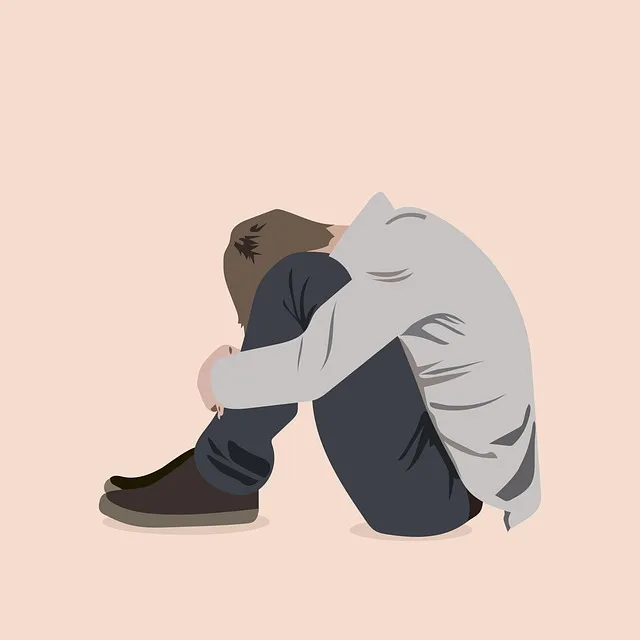Risk assessment is a critical component of high-quality mental health care for professionals at Highlands Ranch Kaiser Permanente, enabling them to proactively mitigate adverse outcomes like self-harm or suicide. By identifying potential risks within their practice and client base, these providers enhance service quality, support their well-being through healthy self-care practices, and effectively manage complex cases in a dynamic environment. They face unique pressures due to diverse patient demographics and emotional demands, necessitating tailored community outreach, open communication, structured risk assessment tools, and ongoing training in social skills development and mental wellness coaching. Continuous learning through workshops and seminars further equips them to deliver optimal care while fostering personal growth and reflection, ensuring a safe and supported environment for both patients and professionals.
In the high-stakes realm of mental healthcare, risk assessment is a cornerstone of patient safety. This comprehensive guide explores critical aspects of risk management tailored to Highlands Ranch Kaiser Permanente mental health providers. We delve into understanding risk assessment, uncovering specific risks prevalent in this environment, and implementing robust strategies for mitigation. Furthermore, we emphasize continuous evaluation and training as essential components of a dynamic, resilient care framework. By embracing these practices, professionals can enhance patient outcomes while navigating complex challenges effectively.
- Understanding Risk Assessment in Mental Health Care
- Specific Risks Faced by Highlands Ranch Kaiser Permanente Providers
- Implementing Effective Risk Management Strategies
- Continuous Evaluation and Training for Mental Health Professionals
Understanding Risk Assessment in Mental Health Care

Risk assessment is a cornerstone of effective mental health care, crucial for both patient safety and professional well-being. For Highlands Ranch Kaiser Permanente mental health providers, understanding this process involves recognizing potential risks within their practice settings and among their client population. By conducting thorough assessments, they can identify factors contributing to adverse outcomes, such as increased risk of self-harm or suicide, and implement appropriate interventions early on.
This proactive approach, integrated into routine care, not only enhances the quality of services but also supports burnout prevention strategies for healthcare providers. It encourages mental health professionals to prioritize their own Self-Care Practices, ensuring they are well-equipped to support their clients’ Mental Health Awareness. This holistic perspective, focusing on both patient and provider well-being, is essential in navigating complex cases and fostering positive outcomes within the dynamic landscape of mental health care.
Specific Risks Faced by Highlands Ranch Kaiser Permanente Providers

Highlands Ranch Kaiser Permanente mental health providers face unique challenges due to their critical role in a fast-paced healthcare environment. They regularly interact with individuals experiencing various mental health crises, from anxiety and depression to more severe conditions. This constant exposure can be emotionally taxing, leading to potential burnout if not adequately addressed.
Furthermore, these professionals often find themselves navigating complex patient demographics and cultural sensitivities. Effective treatment requires an understanding of the specific needs and barriers within the community, such as implementing successful Community Outreach Program initiatives. Additionally, self-care routine development is essential for maintaining resilience. Crisis intervention guidance plays a pivotal role in managing acute situations, and providers must be equipped with up-to-date strategies to ensure optimal patient care.
Implementing Effective Risk Management Strategies

Implementing Effective Risk Management Strategies for Highlands Ranch Kaiser Permanente mental health providers involves a multifaceted approach tailored to address the unique challenges and complexities within this field. At the core, it’s paramount to foster robust communication channels that encourage professionals to openly discuss concerns and near misses. This creates an environment where potential risks are identified early, allowing for timely interventions.
Moreover, integrating structured risk assessment tools and ongoing training in social skills development and mental wellness coaching programs can significantly enhance resilience. These strategies not only empower mental health providers with the necessary tools to navigate complex situations but also contribute to their own mental wellness. By prioritizing these measures, Highlands Ranch Kaiser Permanente can ensure its professionals are equipped to offer exceptional care while mitigating potential risks effectively.
Continuous Evaluation and Training for Mental Health Professionals

Highlands Ranch Kaiser Permanente mental health providers are committed to continuous evaluation and training to ensure they remain at the forefront of their field. Regular workshops and seminars are organized to enhance skills in empathy building strategies, trauma support services, and mental illness stigma reduction efforts. This ongoing learning ensures professionals stay updated with the latest research and therapeutic approaches, thereby delivering optimal care to their clients.
Through these initiatives, providers can maintain a high level of competence, adapt to evolving patient needs, and foster an environment where individuals feel safe and supported. Continuous evaluation also allows for personal growth and reflection, promoting better coping mechanisms for professionals themselves, which is essential in managing the emotional demands of the job.
Mental health professionals in Highlands Ranch Kaiser Permanente face unique challenges, necessitating comprehensive risk assessment strategies. By understanding specific risks, implementing effective management techniques, and prioritizing continuous evaluation and training, healthcare providers can enhance patient safety and foster a healthier environment for practice. These proactive measures are crucial for the well-being of both patients and practitioners within this critical care setting.






